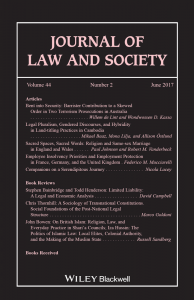Who Dreamed a Dream?
[youtube=http://www.youtube.com/watch?v=9lp0IWv8QZY&feature=related]
by linanne10
A recent youtube video of one of the performances in the largest British competition show, “Britain’s Got Talent,” have received incalculable viewing frequencies, and the number is still rising. Susan Boyle is the focus of this incident. Her mundane (and to some point, ludicrous) appearance, with her resonant and rich voice made her the new “instant celebrity” (according to a recent New York Times article). Drawing from Alexander’s idea on social performance, a successful performance needs to be authentic. Authenticity here refers to the fusion between social roles and performative scripts. While social roles and performative scripts are embedded in cultural contexts, which provide the resources and structures for performance and reception, where is the possibility for a performance to be successful without following traditional social or cultural scripts? Susan Boyle’s performance could serve as an example with two folds of meanings. First, her “social role” as a 47 year-old, unmarried, unemployed women who mostly sang at the local church could hardly fit the expectation of fulfilling scripts that are assigned to “singers” or “performers.” Her “role” in this sense is in conflict with the “script” that she attempts to take on. On the other hand, her following performance fits neatly with the role as a singer, overwriting the “role” for a successful performance, as well as re-writing the script for a 47 year-old, unmarried, unemployed women.
What might be interesting to discuss here, is the audiences consumption of performance. Performances which fuse “roles” and “scripts” could be successful, but remains only as being “successful.” Performances which the “roles” and “scripts” are in conflict and could re-write each other, could be “shockingly” successful. This could be a chance to see social change that disturbs “roles” and “scripts.” However, this incident could also be recognized as a consuming pattern in a society where audience crave “shock” and “excitement.”





A timely post, and it is great to see a sociological perspective on Ms. Boyle’s performance. Thanks!
Keri